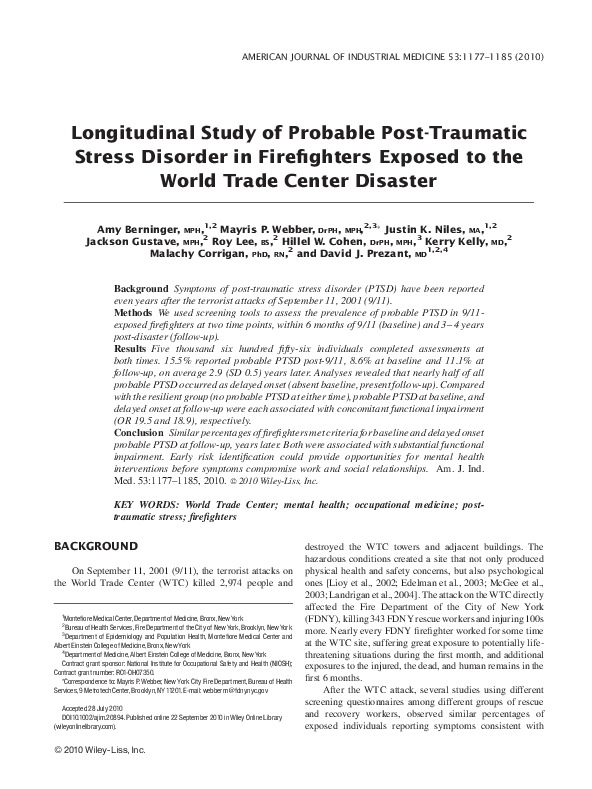Longitudinal study of probable post-traumatic stress disorder in firefighters exposed to the World Trade Center disaster

Berninger, Amy ; Webber, Mayris P. ; Niles, Justin K. ; Gustave, Jackson ; Lee, Roy ; Cohen, Hillel W. ; Kelly, Kerry ; Corrigan, Malachy ; Prezant, David J.
American Journal of Industrial Medicine
2010
53
12
1177-1185
longitudinal analysis ; mental health ; stress evaluation ; fire fighter
Psychosocial risks
English
Bibliogr.
"BackgroundSymptoms of post-traumatic stress disorder (PTSD) have been reported even years after the terrorist attacks of September 11, 2001 (9/11).MethodsWe used screening tools to assess the prevalence of probable PTSD in 9/11-exposed firefighters at two time points, within 6 months of 9/11 (baseline) and 3–4 years post-disaster (follow-up).ResultsFive thousand six hundred fifty-six individuals completed assessments at both times. 15.5% reported probable PTSD post-9/11, 8.6% at baseline and 11.1% at follow-up, on average 2.9 (SD 0.5) years later. Analyses revealed that nearly half of all probable PTSD occurred as delayed onset (absent baseline, present follow-up). Compared with the resilient group (no probable PTSD at either time), probable PTSD at baseline, and delayed onset at follow-up were each associated with concomitant functional impairment (OR 19.5 and 18.9), respectively.ConclusionSimilar percentages of firefighters met criteria for baseline and delayed onset probable PTSD at follow-up, years later. Both were associated with substantial functional impairment. Early risk identification could provide opportunities for mental health interventions before symptoms compromise work and social relationships."
Digital
The ETUI is co-funded by the European Union. Views and opinions expressed are however those of the author(s) only and do not necessarily reflect those of the European Union or the ETUI.